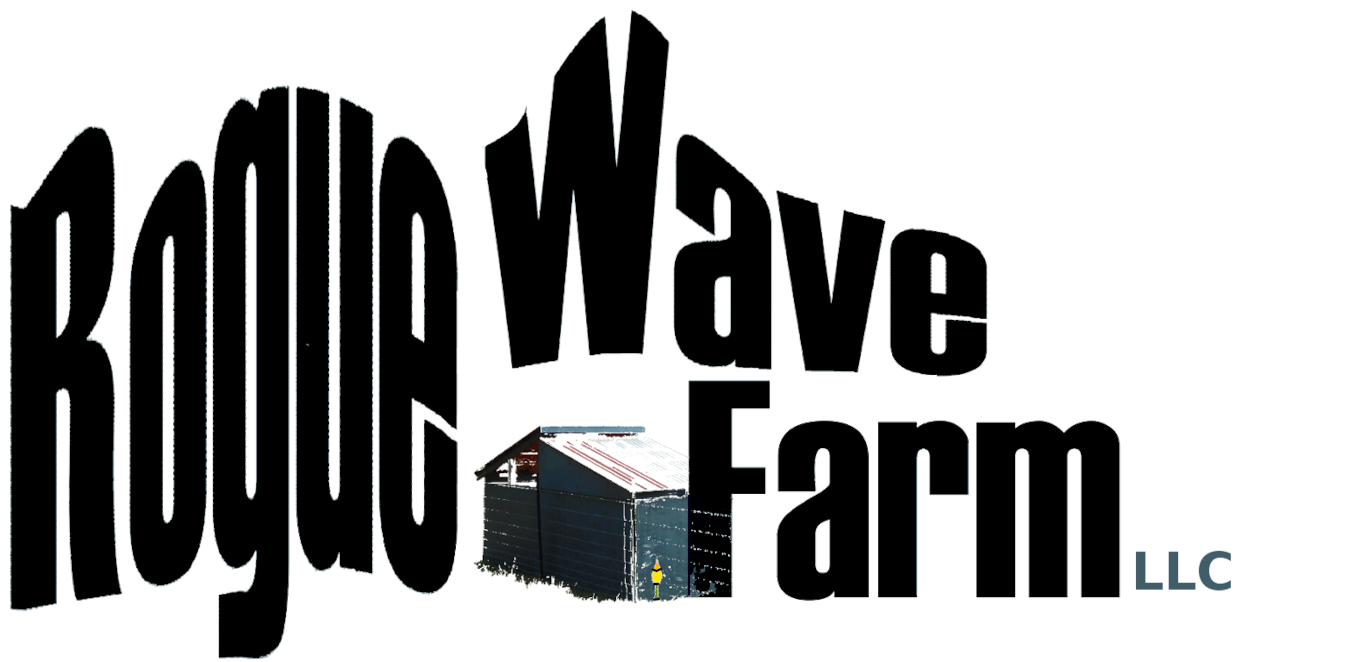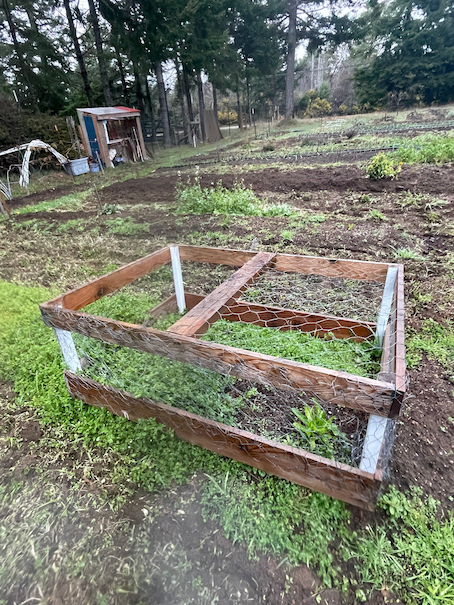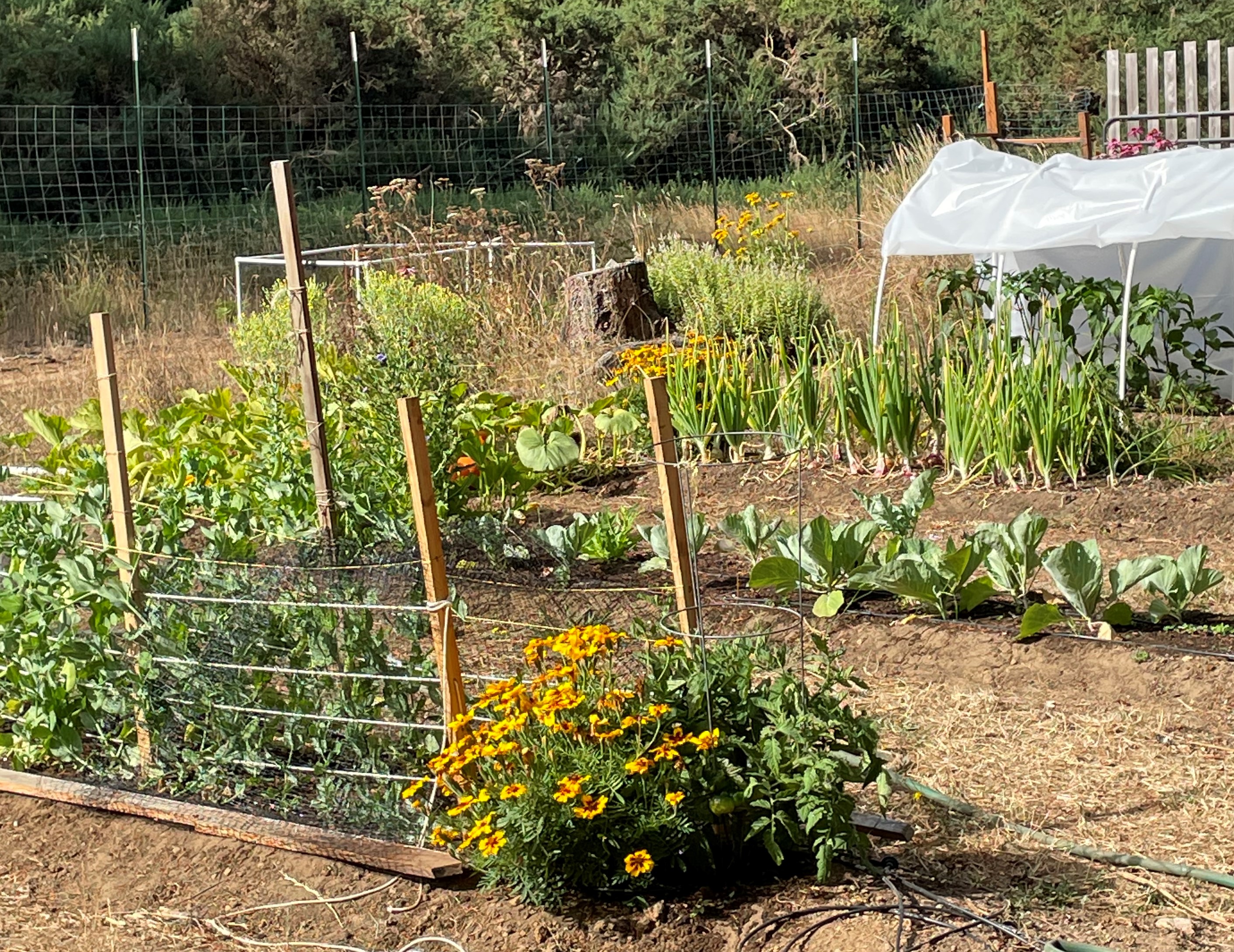
At Rogue Wave Farm LLC, we envision a way of living that honors the rhythms of nature and the dignity of meaningful work. Our aim is to cultivate a place where responsibility, creativity, and stewardship guide action. By reusing what we have, conserving what we need, and supporting those around us, we nurture a community that learns from the land and contributes to its renewal. In doing so, we hope to pass forward a living example of balance, resilience, and care for future generations
We broke ground almost 8 years ago.
We rehabilitated a small 8'x12' greenhouse, fenced in 1/4 acre with 6' high fence, and began building 3'x20' garden beds. Since our soil is poor for agriculture, mostly sand and clay with low pH from conifer litter, we used barnyard manure mixed with maple, alder, and myrtle leaves to make compost and soil. After 7 years, we built up twenty garden beds, averaging 3 ft. wide by 20 ft. long. Now we can produce all our salad greens, 7 to 8 months of our garlic and onion needs, and all winter we harvest broccoli, arugula, carrots, kale, and cilantro. In the winter, it rarely frosts or freezes. However, the summers are cool and dry, in high 60 s, and it is windy in June and July. The cool summers leave tomatoes, peppers, eggplants and hot weather crops struggling. In order to achieve warm soil temperatures, we use cloatches and wind protections. We have grown bumper crops of tomatoes and peppers with cloche coverings and hoop houses, but these require extra labor to roll up the coverings in the day and roll them back down at night.
Pests are controlled through plant rotation, intentional plantings, and other plant based methods. We also have used two chickens in a small cage (chicken tractor) moved along the bed before planting to scratch out weeds and eat grubs, root maggots, and earwigs.
 We have seasonal exploding populations of voles and slugs. Slugs are managed with weeding and inspections at dusk. We also use small pieces of 1"x6" boards in the beds and the slugs make a home under the boards, accumulating for easy removal. In the past, we've used the beer in a can technique. The volves (field mice) are underground.
We have seasonal exploding populations of voles and slugs. Slugs are managed with weeding and inspections at dusk. We also use small pieces of 1"x6" boards in the beds and the slugs make a home under the boards, accumulating for easy removal. In the past, we've used the beer in a can technique. The volves (field mice) are underground.
Spraying the ground with a castor oil and water mix moves them out to the perimeters of garden beds, but we haven't been able to move out the colonies. Voles killed the asparagus roots and feast on beets, carrots, and turnips. We built these 2 ft. x 4 ft. cedar raised containers and can grow small amounts of lovely root crops this way. We are in the process of building a hoop house and greenhouse, with reused materials we have, in order to raise soil temperatures. These structures will also have hardware wire protected raised beds in order to block the voles from access. Otherwise, bugs are currently under control; we think the crop rotation and inspections manage that.
We feed growing plants with an NPK mix every other month: dried compost, langbeinite, green sand, and bone meal. Plant rotations in sequences by plant families also help maintain an exchange of nutrients in the soil. We don't till our beds, we use a broadfork. Our soil testing is showing slight deficiencies in the major nutrients, so we can increase the amount of NPK we apply. We plan to introduce mason bees in the old stumps in the garden as an experiment to increase plant yields.
A solar, off-grid, small electric system runs the fans in our greenhouses and provides a remote power source.
